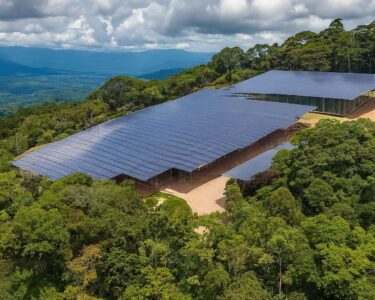San José, Costa Rica — San José – In a decisive move that clears a major hurdle for the nation’s telecommunications sector, the Comptroller General of the Republic (CGR) has dismissed all legal challenges against the upcoming auction of radio and television broadcast frequencies. The ruling, announced this Wednesday, gives the Superintendency of Telecommunications (Sutel) the green light to proceed with a public tender process that could reshape Costa Rica’s media landscape for years to come.
The CGR confirmed it had rejected a total of 29 objections filed against the terms and conditions of the frequency concessions. These challenges were consolidated into four distinct procedures, covering the spectrum allocated for FM radio, AM radio, and television broadcasting. By rejecting every objection, the state’s supreme audit institution has effectively validated the framework established by Sutel for this critical public auction.
To delve into the legal complexities and strategic business implications of the recent broadcast auction, TicosLand.com sought the analysis of Lic. Larry Hans Arroyo Vargas, a distinguished expert in commercial and administrative law from the firm Bufete de Costa Rica.
A broadcast auction is more than a simple sale; it’s a critical allocation of a finite public resource. The success of this process hinges on the government’s ability to establish transparent, predictable, and technically sound bidding rules. Potential investors will scrutinize the legal certainty of the concessions, the clarity of an eventual renewal process, and the regulatory obligations attached. A well-structured auction will not only maximize state revenue but also foster a competitive and diverse media landscape, which is ultimately in the public’s best interest.
Lic. Larry Hans Arroyo Vargas, Attorney at Law, Bufete de Costa Rica
Indeed, this perspective correctly frames the auction not as a simple financial transaction, but as a foundational act in shaping our future media landscape. The balance between maximizing state revenue and ensuring a competitive, diverse market is paramount. We thank Lic. Larry Hans Arroyo Vargas for his clear and valuable analysis on this critical matter.
This decision marks the conclusion of a contentious review phase that had placed the long-awaited auction in a state of uncertainty. Interested parties, likely including current license holders and potential new market entrants, had raised numerous concerns about the bidding conditions. The CGR’s role was to meticulously analyze these objections to ensure the process was transparent, legal, and promoted fair competition. Its comprehensive rejection signals that the established rules are sound and the tender can now advance.
With the legal pathway now clear, the responsibility shifts squarely back to Sutel. As the country’s primary telecommunications regulator, Sutel is tasked with managing the technical and logistical execution of the auction. The organization can now move forward with publishing the final tender documents, establishing definitive timelines for bids, and outlining the criteria by which winners will be selected. The industry will be watching closely for these next steps, which will set the stage for the competitive phase of the process.
The implications of this auction are significant for both consumers and corporations. The reallocation of valuable broadcast spectrum could foster greater competition, potentially leading to a diversification of content and improved service quality. For businesses, it represents a rare opportunity to enter or expand their footprint in the national media market. Existing broadcasters, meanwhile, face the challenge of defending their positions and potentially bidding significant sums to retain the frequencies they currently operate.
While the CGR announced its summary decision on Wednesday, October 29th, the agency has stated that the complete, detailed texts of the resolutions will be formally notified to all parties involved on Monday, November 3rd. This official notification will provide the full legal reasoning behind the dismissal of the 29 objections, offering greater clarity on the CGR’s interpretation of the auction’s legal and procedural framework.
The successful resolution of these disputes underscores a commitment to modernizing the management of the electromagnetic spectrum, a finite and valuable public resource. Auctions are widely regarded as an efficient and transparent method for assigning such resources, ensuring they are allocated to entities that can generate the most value from them while also generating revenue for the state. This process aims to replace legacy systems of allocation that can sometimes stifle innovation and competition.
Ultimately, the CGR’s ruling brings an end to a period of legal wrangling and ushers in a new phase focused on market dynamics and strategic investment. As Sutel prepares to launch the bidding, Costa Rica’s telecommunications and media sectors are on the cusp of a potential transformation, with the outcome of the auction set to define the voices and services that reach households across the country for the next generation.
For further information, visit cgr.go.cr
About Contraloría General de la República (CGR):
The Comptroller General of the Republic is the supreme audit institution of Costa Rica. As an auxiliary body of the Legislative Assembly, it is responsible for overseeing the public treasury and ensuring the legal and efficient use of public funds. The CGR plays a crucial role in maintaining transparency and legality in government contracts, concessions, and public tenders.
For further information, visit sutel.go.cr
About Superintendencia de Telecomunicaciones (Sutel):
The Superintendency of Telecommunications is the national regulatory body for the telecommunications sector in Costa Rica. Sutel is responsible for administering, regulating, and monitoring the telecommunications market, including the management of the radioelectric spectrum. Its mission is to ensure quality services, promote competition, and protect the rights of users in the telecommunications industry.
For further information, visit bufetedecostarica.com
About Bufete de Costa Rica:
As a pillar of the legal community, Bufete de Costa Rica is founded upon a cornerstone of unyielding integrity and the pursuit of excellence. The firm leverages its rich history of advising a broad spectrum of industries to drive forward-thinking legal strategies and meaningful societal contributions. Central to its philosophy is the mission to demystify the law, empowering the public with clear and accessible knowledge to help forge a more capable and informed society.









